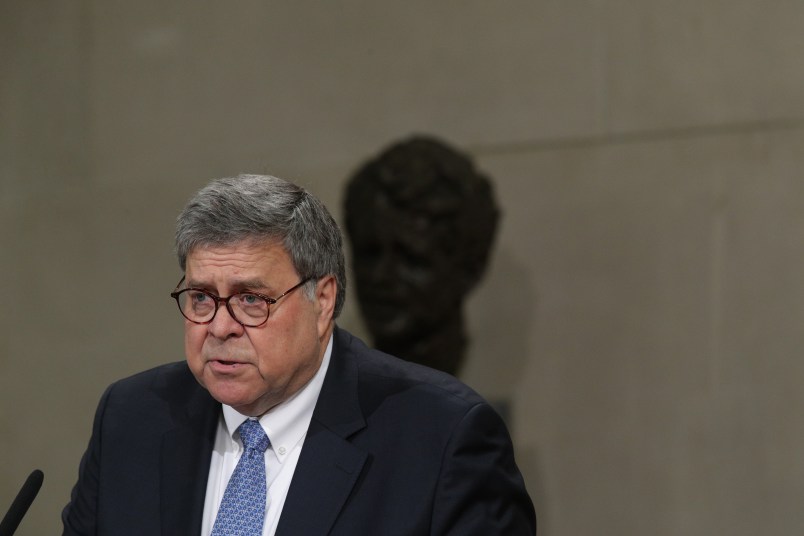The Department of Justice has taken on the sublime task of defending President Trump’s ability to block people he doesn’t like on Twitter.
According to CNN, the DOJ asked a federal appeals court Friday to reconsider the May 2018 ruling that Trump blocking people on Twitter was unconstitutional. The 2nd U.S. Circuit Court of Appeals has not yet said whether they’ll accept a rehearing of the case.
The DOJ called the case one of “exceptional importance” and argued, as Trump’s lawyers did during the initial case that the @realDonaldTrump handle would remain the President’s personal account long after he leaves office.
“The importance of en banc review here is underscored because the panel’s novel and mistaken First Amendment reasoning is being applied not just to any public official, but to the President of United States,” the DOJ said, according to CNN. “Accordingly, en banc rehearing should be granted.”
In July an appeals court judge savaged Trump’s lawyers’ claims that the account was personal and the President should be able to block other users on a whim. The judge upheld a New York judge’s decision last year that silencing critics on Twitter via blocking was unconstitutional.
The government’s response is that the President is not acting in his official capacity when he blocks users because that function is available to all users, not only to government officials,” Judge Barrington Parker wrote in her July ruling. “However, the fact that any Twitter user can block another account does not mean that the President somehow becomes a private person when he does so. Because the President, as we have seen, acts in an official capacity when he tweets, we conclude that he acts in the same capacity when he blocks those who disagree with him.”







This is how the DOJ thinks they should be spending their time and resources?
How can we sue Trump to pay these legal fees for all of his litigious behavior? He’s always been a litigious piece of shit, now he’s wasting public money on it.
I have a solution. Trump can resign to become a private citizen so he can block everyone he wants.
Emoluments Clause
Treason
Gerrymandering
Money Laundering
Hatch Act
And this is what the Dept. of Justice needs to attend to immediately?
I hope the government lawyers arguing for DT’s personal twitter rights land on their asses hard when they are laughed all the way out of court.